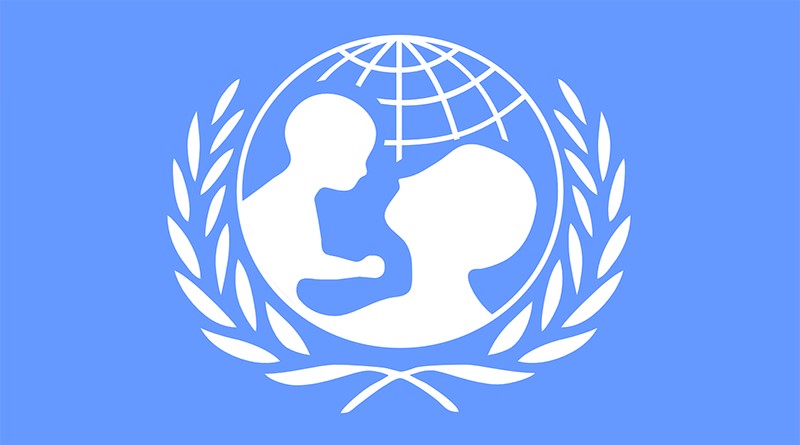Children and young people could feel the impact of COVID-19 on their mental health and well-being for many years to come, UNICEF warned in its flagship report.
According to The State of the World’s Children 2021; On My Mind: promoting, protecting and caring for children’s mental health – UNICEF’s most comprehensive look at the mental health of children, adolescents and caregivers in the 21st century – even before COVID-19, children and young people carried the burden of mental health conditions without significant investment in addressing them.
“Schools have been closed for over 40 weeks in Malaysia. Children have been spent away from family, friends, classrooms and playgrounds – key elements of childhood”, said Dr. Rashed Mustapha Sarwar, UNICEF Representative for Malaysia, and Special Representative for Brunei Darussalam. “The impact is significant, and it is just the tip of the iceberg. Even before the pandemic, far too many children in Malaysia were burdened under the weight of unaddressed mental health issues. Too little investment is being made to address these critical needs.”
According to the latest global estimates, more than 1 in 7 adolescents aged 10–19 is estimated to live with a diagnosed mental disorder globally. Almost 46,000 adolescents die from suicide each year, among the top five causes of death for their age group. Meanwhile, wide gaps persist between mental health needs and mental health funding. The report finds that about 2 per cent of government health budgets are allocated to mental health spending globally. In East Asia and the Pacific, adolescents’ mental health and well-being, growing incidences of self-harm, and high suicide rates are of increasing concern.
Children’s mental health during COVID-19
Indeed, the pandemic has taken its toll. According to early findings from an international survey of children and adults in 21 countries conducted by UNICEF and Gallup – which is previewed in The State of the World’s Children 2021 – a median of 1 in 5 young people aged 15–24 surveyed said they often feel depressed or have little interest in doing things.
As COVID-19 heads into its third year, the impact on children and young people’s mental health and well-being continues to weigh heavily. According to the latest available data from UNICEF, globally, at least 1 in 7 children has been directly affected by lockdowns, while more than 1.6 billion children have suffered some loss of education. The disruption to routines, education, recreation, as well as concern for family income and health, is leaving many young people feeling afraid, angry, and concerned for their future. For example, an online survey in China in early 2020, cited in The State of the World’s Children, indicated that around a third of respondents reported feeling scared or anxious.
Cost to society
Diagnosed mental disorders, including ADHD, anxiety, autism, bipolar disorder, conduct disorder, depression, eating disorders, intellectual disability, and schizophrenia, can significantly harm children and young people’s health, education, life outcomes, and earning capacity.
While the impact on children’s lives is incalculable, a new analysis by the London School of Economics in the report indicates that lost contribution to economies due to mental disorders that lead to disability or death among young people is estimated at nearly $390 billion a year.
Protective factors
The report notes that a mix of genetics, experience and environmental factors from the earliest days, including parenting, schooling, quality of relationships, exposure to violence or abuse, discrimination, poverty, humanitarian crises, and health emergencies such as COVID-19, all shape and effect children’s mental health throughout their lifetime.
While protective factors, such as loving caregivers, safe school environments, and positive peer relationships can help reduce the risk of mental disorders, the report warns that significant barriers, including stigma and lack of funding, are preventing too many children from experiencing positive mental health or accessing the support they need.
The State of the World’s Children 2021 calls on governments, and public and private sector partners, to commit, communicate and act to promote mental health for all children, adolescents and caregivers, protect those in need of help, and care for the most vulnerable, including:
· Urgent investment in child and adolescent mental health across sectors, not just in health, to support a whole-of-society approach to prevention, promotion and care.
· Integrating and scaling up evidence-based interventions across health, education and social protection sectors – including parenting programmes that promote responsive, nurturing caregiving and support parent and caregiver mental health; and ensuring schools support mental health through quality services and positive relationships.
· Breaking the silence surrounding mental illness, through addressing stigma and promoting better understanding of mental health and taking seriously the experiences of children and young people.
· Ensuring services and support are tailored to the needs of children and young people by ensuring their perspectives shape policy and programmes.
“For Malaysia, as part of the East Asia and the Pacific region, this transformation of UNICEFs approach to mental health is urgent,” said Dr Rashed. “Failure to effectively address the mental health needs of children, young people and their caregivers will undermine investment in the COVID-19 recovery agenda. Mental health is a part of physical health – and we need to act now to protect and care of the mental needs of children.”




